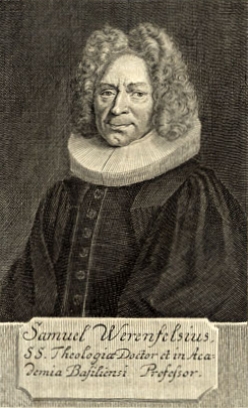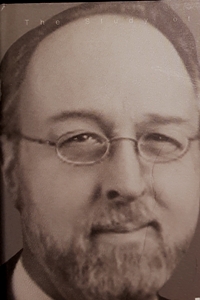Related Research Articles

Ecumenism – also called interdenominationalism, or ecumenicalism – is the concept and principle that Christians who belong to different Christian denominations should work together to develop closer relationships among their churches and promote Christian unity. The adjective ecumenical is thus applied to any non-denominational or inter-denominational initiative which encourages greater cooperation and union among Christian denominations and churches. Ecumenical dialogue is a central feature of contemporary ecumenism.
Pietism, also known as Pietistic Lutheranism, is a movement within Lutheranism that combines its emphasis on biblical doctrine with an emphasis on individual piety and living a holy Christian life.
Orthodoxy is adherence to correct or accepted creeds, especially in religion. Orthodoxy within Christianity refers to acceptance of the doctrines defined by various creeds and ecumenical councils in Antiquity, but different Churches accept different creeds and councils. Such differences of opinion have developed for numerous reasons, including language and cultural barriers. Eastern Orthodoxy and Oriental Orthodoxy are sometimes referred to simply as "Orthodoxy". In some English-speaking countries, Jews who adhere to all the traditions and commandments as legislated in the Torah are often called Orthodox Jews. Sunni Islam is sometimes referred to as "Orthodox Islam".
A Christian denomination is a distinct religious body within Christianity that comprises all church congregations of the same kind, identifiable by traits such as a name, particular history, organization, leadership, theological doctrine, worship style and, sometimes, a founder. It is a secular and neutral term, generally used to denote any established Christian church. Unlike a cult or sect, a denomination is usually seen as part of the Christian religious mainstream. Most Christian denominations refer to themselves as churches, whereas some newer ones tend to interchangeably use the terms churches, assemblies, fellowships, etc. Divisions between one group and another are defined by authority and doctrine; issues such as the nature of Jesus, the authority of apostolic succession, biblical hermeneutics, theology, ecclesiology, eschatology, and papal primacy may separate one denomination from another. Groups of denominations—often sharing broadly similar beliefs, practices, and historical ties—are sometimes known as "branches of Christianity". These branches differ in many ways, especially through differences in practices and belief.
The Confessing Movement is a largely lay-led theologically conservative Christian movement that opposes the influence of theological liberalism and theological progressivism currently within several mainline Protestant denominations and seeks to return those denominations to its view of orthodox doctrine or to form new denominations and disfellowship (excommunicate) them if the situation becomes untenable. Those who eventually deem dealing with theological liberalism and theological progressivism within their churches and denominations as not being tenable anymore would later join or start Confessional Churches and/or Evangelical Churches that continue with the traditions of their respective denominations and maintaining orthodox doctrine while being ecclesiastically separate from the Mainline Protestant denominations. Youth aligned with the Confessing Movement have viewed their project as being an 'Operation Reconquista'.
Systematic theology, or systematics, is a discipline of Christian theology that formulates an orderly, rational, and coherent account of the doctrines of the Christian faith. It addresses issues such as what the Bible teaches about certain topics or what is true about God and his universe. It also builds on biblical disciplines, church history, as well as biblical and historical theology. Systematic theology shares its systematic tasks with other disciplines such as constructive theology, dogmatics, ethics, apologetics, and philosophy of religion.

The pulpit gown, also called pulpit robe or preaching robe, is a black gown worn by Protestant ministers for preaching. It is particularly associated with Reformed churches, while also used in the Anglican, Methodist, Lutheran, Baptist, and Unitarian traditions.

Samuel Werenfels was a Swiss theologian. He was a major figure in the move towards a "reasonable orthodoxy" in Swiss Reformed theology.
In Christianity, confessionalism is a belief in the importance of full and unambiguous assent to the whole of a movement's or denomination's teachings, such as those found in Confessions of Faith, which followers believe to be accurate summaries of the teachings found in Scripture and to show their distinction from other groups - they hold to the Quia form of confessional subscription. Confessionalists believe that differing interpretations or understandings, especially those in direct opposition to traditionally held teachings, cannot be accommodated within a church communion. A denomination or church that shares these beliefs can be called a confessional denomination or confessional church, respectively.
Protestantism originated from the Protestant Reformation of the 16th century. The term Protestant comes from the Protestation at Speyer in 1529, where the nobility protested against enforcement of the Edict of Worms which subjected advocates of Lutheranism to forfeit all of their property. However, the theological underpinnings go back much further, as Protestant theologians of the time cited both Church Fathers and the Apostles to justify their choices and formulations. The earliest origin of Protestantism is controversial; with some Protestants today claiming origin back to people in the early church deemed heretical such as Jovinian and Vigilantius.
Anglican doctrine is the body of Christian teachings used to guide the religious and moral practices of Anglicanism.
Lutheran orthodoxy was an era in the history of Lutheranism, which began in 1580 from the writing of the Book of Concord and ended at the Age of Enlightenment. Lutheran orthodoxy was paralleled by similar eras in Calvinism and tridentine Roman Catholicism after the Counter-Reformation.
Scholastic Lutheran Christology is the orthodox Lutheran theology of Jesus, developed using the methodology of Lutheran scholasticism.

Second scholasticism, also called Modern scholasticism, is the period of revival of scholastic system of philosophy and theology, in the 16th and 17th centuries. The scientific culture of second scholasticism surpassed its medieval source (Scholasticism) in the number of its proponents, the breadth of its scope, the analytical complexity, sense of historical and literary criticism, and the volume of editorial production, most of which remains hitherto little explored.

The following outline is provided as an overview of and topical guide to Christianity:

Protestantism is a branch of Christianity that emphasizes justification of sinners through faith alone, the teaching that salvation comes by unmerited divine grace, the priesthood of all believers, and the Bible as the sole infallible source of authority for Christian faith and practice. The five solae summarize the basic theological beliefs of mainstream Protestantism.

Richard A. Muller is an American historical theologian.

Benedict Pictet (1655–1724) was a Genevan Reformed theologian.
Reformed orthodoxy or Calvinist orthodoxy was an era in the history of Calvinism in the 16th to 18th centuries. Calvinist orthodoxy was paralleled by similar eras in Lutheranism and tridentine Roman Catholicism after the Counter-Reformation. Calvinist scholasticism or Reformed scholasticism was a theological method that gradually developed during the era of Calvinist Orthodoxy.
References
Notes
- 1 2 "Protestant Orthodoxy" 2006.
- ↑ Campbell 1996, pp. 126–127.
- ↑ Klauber 1998, p. 129.
- ↑ Cooper 2022.
Bibliography
- Campbell, Ted A. (1996). Christian Confessions: A Historical Introduction. Louisville, Kentucky: Westminster John Knox Press. ISBN 978-0-664-25650-0.
- Cooper, Jordan B. (22 March 2022), "What Exactly is Protestant Scholasticism and Why Does It Matter? On the Protestant Adoption of Realism", Credo Magazine, vol. 12, no. 1, archived from the original on 3 June 2023
- Klauber, Martin I. (1998). "The Eclipse of Reformed Scholasticism in Eighteenth-Century Geneva: Natural Theology from Jean-Alphonse Turretin to Jacob Vernet". In Roney, John B.; Klauber, Martin I. (eds.). The Identity of Geneva: The Christian Commonwealth, 1564–1864. Contributions to the Study of World History. Vol. 59. Westport, Connecticut: Greenwood Publishing Group. pp. 129–142. ISBN 978-0-313-29868-4. ISSN 0885-9159.
- "Protestant Orthodoxy". Encyclopædia Britannica. 2006. Retrieved 11 March 2017.